Ditapis dengan

Our Knowledge of the Growth of Knowledge: Popper or Wittgenstein?
Peter Munz, a former student of both Popper and Wittgenstein, begins his comparison of the two great twentieth-century philosophers, by explaining that since the demise of positivism there have emerged, broadly speaking, two philosophical options: Wittgenstein, with the absolute relativism of his theory that meaning is a function of language games and that social configurations are determinants…
- Edisi
- -
- ISBN/ISSN
- 0710204604
- Deskripsi Fisik
- xii + 353 pg.; 22 cm.
- Judul Seri
- -
- No. Panggil
- 121 MUN o
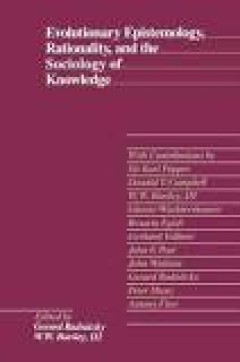
Evolutionary Epistemology, Rationality, and the Sociology of Knowledge
This collection of essays in support of the theory of evolutionary epistemology includes articles by Karl Popper, Peter Munz and Gerhard Vollmer. This volume attempts to show how an evolutionary and non-justificational approach affects the sociology of knowledge.
- Edisi
- -
- ISBN/ISSN
- 0812690389
- Deskripsi Fisik
- xiv + 475 pg.; 23 cm.
- Judul Seri
- -
- No. Panggil
- 121 EVO e
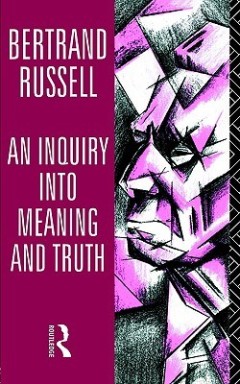
An Inquiry Into Meaning And Truth
Bertrand Russell is concerned in this book with the foundations of knowledge. He approaches his subject through a discussion of language, the relationships of truth to experience and an investigation into how knowledge of the structure of language helps our understanding of the structure of the world.
- Edisi
- -
- ISBN/ISSN
- 0041210190
- Deskripsi Fisik
- 352 pg.; 19,5 cm.
- Judul Seri
- -
- No. Panggil
- 121 RUS a
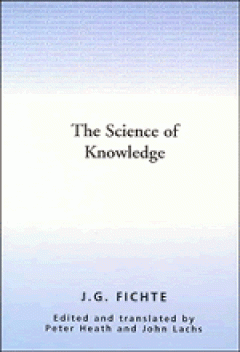
The Science of Knowledge
This is a reproduction of a book published before 1923. This book may have occasional imperfections such as missing or blurred pages, poor pictures, errant marks, etc. that were either part of the original artifact, or were introduced by the scanning process. We believe this work is culturally important, and despite the imperfections, have elected to bring it back into print as part of our cont…
- Edisi
- -
- ISBN/ISSN
- 0521250188
- Deskripsi Fisik
- xxii + 298 pg.; 23 cm.
- Judul Seri
- -
- No. Panggil
- 121 FIC s
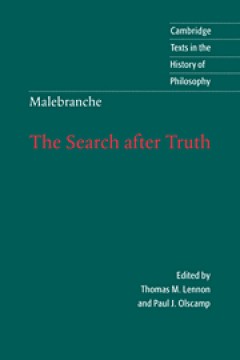
Nicolas MalebrancheThe Search After Truth
Nicolas Malebranche is now recognised as a major figure in the history of philosophy, occupying a crucial place in the Rationalist tradition of Descartes, Spinoza and Leibniz. The Search after Truth is his first, longest and most important work; this volume also presents the Elucidations which accompanied its third edition, the result of comments that Malebranche solicited on the original work …
- Edisi
- -
- ISBN/ISSN
- 0814202462
- Deskripsi Fisik
- xxxii + 861 pg.: ils.24 cm.
- Judul Seri
- -
- No. Panggil
- 121 MAL n
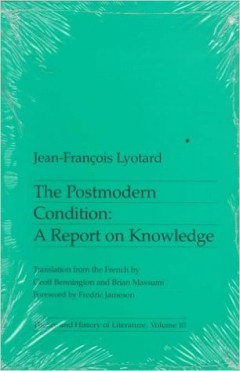
The Postmodern Condition: A Report on Knowledge
Many definitions of postmodernism focus on its nature as the aftermath of the modern industrial age when technology developed. This book extends that analysis to postmodernism by looking at the status of science, technology, and the arts, the significance of technocracy, and the way the flow of information is controlled in the Western world.
- Edisi
- -
- ISBN/ISSN
- 07190114549
- Deskripsi Fisik
- xxv + 23,5 cm.
- Judul Seri
- -
- No. Panggil
- 001 LYO p
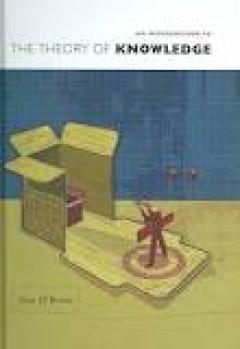
Theory Of Knowledge: An Introduction
An Introduction to the Theory of Knowledge guides the reader through the key issues and debates in contemporary epistemology. Lucid, comprehensive and accessible, it is an ideal textbook for students who are new to the subject and for university undergraduates. The book is divided into five parts. Part I discusses the concept of knowledge and distinguishes between different types of knowledg…
- Edisi
- -
- ISBN/ISSN
- -
- Deskripsi Fisik
- 192 hlm.; 21,5 cm.
- Judul Seri
- -
- No. Panggil
- 121 WOO t
 Karya Umum
Karya Umum  Filsafat
Filsafat  Agama
Agama  Ilmu-ilmu Sosial
Ilmu-ilmu Sosial  Bahasa
Bahasa  Ilmu-ilmu Murni
Ilmu-ilmu Murni  Ilmu-ilmu Terapan
Ilmu-ilmu Terapan  Kesenian, Hiburan, dan Olahraga
Kesenian, Hiburan, dan Olahraga  Kesusastraan
Kesusastraan  Geografi dan Sejarah
Geografi dan Sejarah